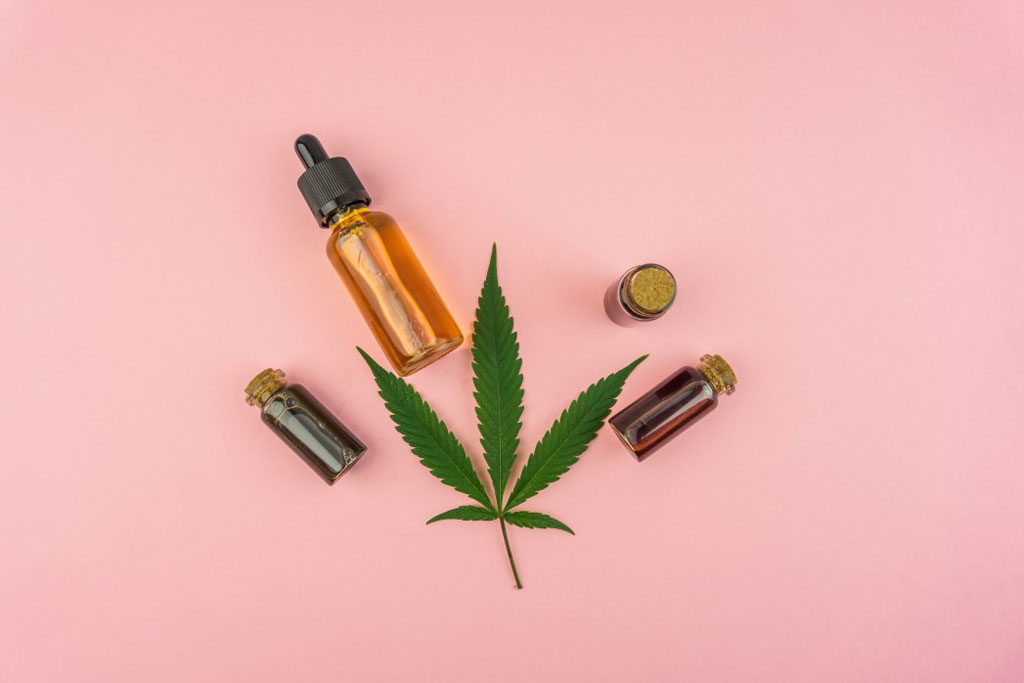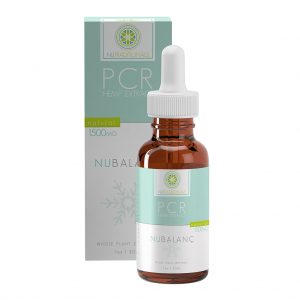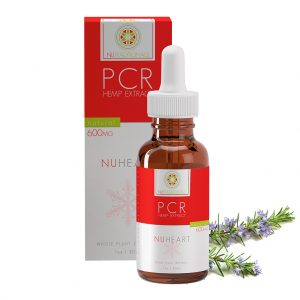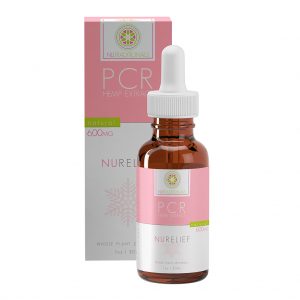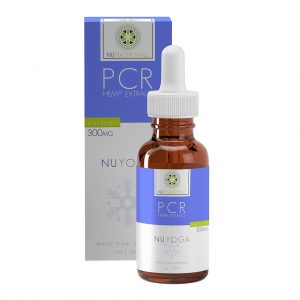CBD
Benefits of Whole Spectrum Hemp Extract and CBD Oil
The Benefits of Whole-Spectrum Hemp Extract?
Many people integrate CBD into their health routine to support their cellular and molecular health.* CBD, or cannabidiol, is just one of over 200+ cannabinoids that can be extracted from hemp. In fact, scientists found that these plant compounds have a better effect on the body when they work together, rather than alone. This means that CBD and all those other great compounds can support the body more fully than just CBD. And how, exactly, do they provide support to the body? Among the many benefits that our users experience, some of the main ones are: a sense of calm for focus; relief from everyday stresses; help in recovery from exercise-induced inflammation; and support for healthy sleep cycles.
Nutraditionals uses the whole botanical to capture the full spectrum or whole-spectrum phytocannabinoid-rich hemp extract with CBD, CBN, CBC, CBG and other cannabinoids and beneficial plant compounds like terpenes and flavonoids. Since research shows that using the whole spectrum of the hemp plant maximizes entourage benefits delivered throughout the body and supplies additional wellness components, we make sure to give you as much of the whole spectrum CBD extract’s phytocannabinoid-rich botanical health as we can.
1. Could Reduce Anxiety and Depression Relief
Anxiety and depression are common mental health disorders that can have devastating impacts on health and well-being. Whole Spectrum Hemp Extract or CBD oil may be able to help you manage anxiety. Researchers think CBD may change the way your brain’s receptors respond to serotonin, a chemical linked to mental health. Receptors are tiny proteins attached to your cells that receive chemical messages and help your cells respond to different stimuli.
One study found that a 600mg dose of CBD helped people with social anxiety give a speech. Other early studies done with animals have shown that CBD may help relieve anxiety by:
- reducing stress
- decreasing physiological effects of anxiety, such as an increased heart rate
- improving symptoms of post-traumatic stress disorder (PTSD)
- inducing sleep in cases of insomnia
2. May Have Anti-seizure Properties
CBD has been in the news before, as a possible treatment for epilepsy. Research is still in its early days. Researchers are testing how much CBD is able to reduce the number of seizures in people with epilepsy, as well as how safe it is. The American Epilepsy Society states that cannabidiol research offers hope for seizure disorders, and that research is currently being conducted to better understand safe use.
A study from 2016 worked with 214 people with epilepsy. The study participants added oral doses of 2 to 5mg of CBD per day to their existing anti-epilepsy medications. The study’s researchers monitored the participants for 12 weeks, recording any negative side effects and checking on the frequency of their seizures. Overall, participants had 36.5 percent fewer seizures per month. However, severe adverse effects were recorded in 12 percent of the participants.
3. Might Have Neuroprotective Properties
Researchers believe that CBD’s ability to act on the endocannabinoid system and other brain signaling systems may provide benefits for those with neurological disorders. Researchers are looking at a receptor located in the brain to learn about the ways that CBD could help people with neurodegenerative disorders, which are diseases that cause the brain and nerves to deteriorate over time. This receptor is known as CB1.
Researchers are studying the use of CBD oil for treating:
- Alzheimer’s disease
- multiple sclerosis (MS)
- Parkinson’s disease
- stroke
CBD oil may also reduce the inflammation that can make neurodegenerative symptoms worse. More research is needed to fully understand the effects of CBD oil for neurodegenerative diseases.
4. Can Relieve Pain
Studies have shown that benefits of CBD oil may help reduce chronic pain by impacting endocannabinoid receptor activity, reducing inflammation and interacting with neurotransmitters (8).The effects of CBD oil on your brain’s receptors may also help you manage pain. Studies have shown that cannabis can offer some benefits when taken after chemotherapy treatments. Other pre-clinical studies sponsored by the National Institutes of Health are also looking at the role of cannabis in relieving symptoms caused by:
Nabiximols (Sativex), a multiple sclerosis drug made from a combination of TCH and CBD, is approved in the United Kingdom and Canada to treat MS pain. However, researchers think the CBD in the drug may be contributing more with its anti-inflammatory properties than by acting against the pain. Clinical trials of CBD are necessary to determine whether or not it should be used for pain management.
5. May Reduce Acne
The benefits of CBD oil and its effects on receptors in the immune system may help reduce overall inflammation in the body. In turn, CBD oil may offer benefits for acne management. A human study published in the Journal of Clinical Investigation found that the oil prevented activity in sebaceous glands. These glands are responsible for producing sebum, a natural oily substance that hydrates the skin. Too much sebum, however, can lead to acne.
Before you consider CBD oil for acne treatment, it’s worth discussing with your dermatologist. More human studies are needed to evaluate the potential benefits of CBD for acne.
5. Can Alleviate Cancer-Related Symptoms
Some studies have investigated the role of the benefits of CBD oil in preventing cancer cell growth, but research is still in its early stages. The National Cancer Institute (NCI) says that CBD may help alleviate cancer symptoms and cancer treatment side effects. However, the NCI doesn’t fully endorse any form of cannabis as a cancer treatment. The action of CBD that’s promising for cancer treatment is its ability to moderate inflammation and change how cell reproduce. CBD has the effect of reducing the ability of some types of tumor cells to reproduce.
6. Could Benefit Heart Health
Recent research has linked the benefits of CBD oil with several benefits for the heart and circulatory system, including the ability to lower high blood pressure.
High blood pressure is linked to higher risks of a number of health conditions, including stroke, heart attack and metabolic syndrome (1).
Studies indicate that CBD may be able to help with high blood pressure.
One recent study treated nine healthy men with one dose of 600 mg of PCR CBD oil and found it reduced resting blood pressure, compared to a placebo.
The same study also gave the men stress tests that normally increase blood pressure. Interestingly, the single dose of CBD led the men to experience a smaller blood pressure increase than normal in response to these tests (2).
Researchers have suggested that the stress-and anxiety-reducing properties of CBD are responsible for its ability to help lower blood pressure.
Additionally, several animal studies have demonstrated that CBD may help reduce the inflammation and cell death associated with heart disease due to its powerful antioxidant and stress-reducing properties.
For example, one study found that treatment with CBD reduced oxidative stress and prevented heart damage in diabetic mice with heart disease (3).
7. Several Other Potential Benefits
Other benefits of CBD oil has been studied for its role in treating a number of health issues other than those outlined above.
Though more studies are needed, CBD is thought to provide the following health benefits:
- Antipsychotic effects: Studies suggest that CBD may help people with schizophrenia and other mental disorders by reducing psychotic symptoms (4).
- Substance abuse treatment: CBD has been shown to modify circuits in the brain related to drug addiction. In rats, CBD has been shown to reduce morphine dependence and heroin-seeking behavior (5).
- Anti-tumor effects: In test-tube and animal studies, CBD has demonstrated anti-tumor effects. In animals, it has been shown to prevent the spread of breast, prostate, brain, colon and lung cancer (6).
- Diabetes prevention: In diabetic mice, treatment with CBD reduced the incidence of diabetes by 56% and significantly reduced inflammation (7).
How to use CBD oil
PhytoCannabinoid-Rich CBD is extracted from the full spectrum of the hemp plant as either an oil or powder. These can be mixed into creams or gels. They can be put into capsules and taken orally, or rubbed on your skin. The multiple sclerosis drug nabiximols is sprayed as a liquid into your mouth. How CBD should be used depends largely on what it’s being used for. Talk to your doctor before using Whole Spectrum PCR CBD Hemp oil. It hasn’t been approved by the U.S. Food and Drug Administration (FDA) for any medical uses, and it can have side effects.
Whole Spectrum Hemp Extract and CBD Oil side effects
CBD oil usually doesn’t have any major risks for users. However, side effects are possible. These include:
- depression
- dizziness
- hallucinations
- low blood pressure
- withdrawal symptoms, such as irritability and insomnia
More studies are needed to fully understand the range of risks and side effects that CBD oil may cause. Studies of CBD oil aren’t common, more research is possible, and more answers will come.
Whole Spectrum Hemp Extract and CBD Oil Legal?
Whole Spectrum Hemp Extract is legal everywhere I the United States. CBD oil isn’t legal everywhere. In the United States, CBD oil is legal in some states, but not all. Certain states that have legalized CBD for medical use may require users to apply for special licensing. It’s also important to know that the FDA hasn’t approved CBD for any medical conditions.
Is CBD Oil Legal? Hemp-derived CBD products (with less than 0.3 percent THC) are legal on the federal level, but are still illegal under some state laws. Marijuana-derived CBD products are illegal on the federal level, but are legal under some state laws. Check your state’s laws and those of anywhere you travel. Keep in mind that nonprescription CBD products are not FDA-approved, and may be inaccurately labeled.


